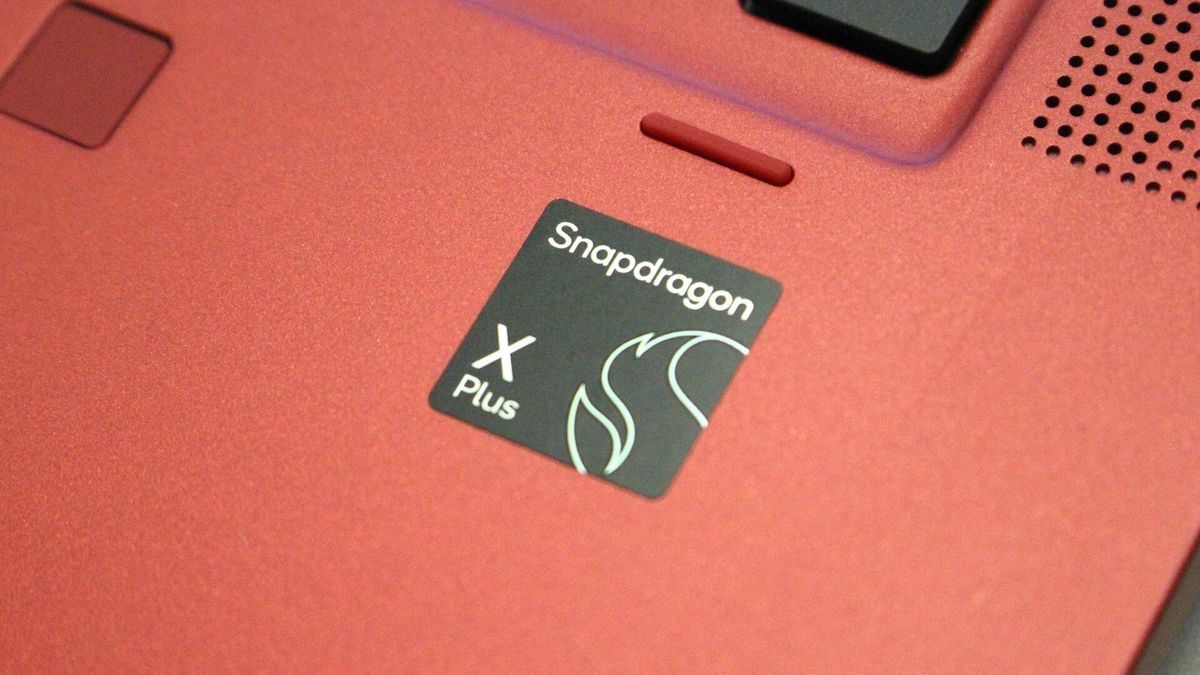Go RISC-V phones please!! Omg. I really hope RISC-V goes mainstream because of this.
Let’s wait and see how this develops…
I hope this isn’t a cartoony scheme driven by Apple honeydicking Arm with the M-series processors to tank PC and Android.
Arm owner softbank wants more mulah, want line goes up.
Qualcomm thinks this is not allowed in their license contract.
Without having read the contract, I think Qualcomm has a strong case, seams arm wants this to be settled before court in December. Qualcomm also thinks they have a strong case, so they say let the courts begin.
But it doesn’t matter if it’s an American court, because Qualcomm is American, softbank is Asian, arm is European. So, you have home turf advantage
Just when ARM devices were finally getting good…
Oh no, not copilot!
While every comment here seems to scream “end patents”, arm has less patent bs than other tech (rounded corners) meant to sue/prevent use. Arm works hard on developing and improving architecture and designs to offer licenses at a compelling price. Qualcomm paying as much as other licensees should be preferable to Qualcomm than bankruptcy.
Qualcomm paying as much as other licensees should be preferable to Qualcomm than bankruptcy.
Not saying this is wrong, but where do you get it from? The article just states that ARM considers Qualcomm’s acquisition of Nuvia a breach of license. Both companies held ARM licenses before. What’s the issue with such a purchase?
Truly yes, but RISC-V.
The amount of IP money grubbing in the IT industry is able to literally make millions out of sand, this is just more of it.
Not necessarily “out of sand”. IP is basically putting a price tag on a person for them to say “Yes, I consent”. In other words, technofeudalism.
I may be off base but I think that might be referencing what the computer chips are made of…
We shall break into the desktop and laptop market! Let’s start by severing ties with one of the most successful companies to do that so far.
Apple?
The free market is going very well here
This is 100% capitalism. It’s not free market to have a goverment-enforced monopoly.
You are correct. There would be no copyrights or patents in a free market.
Yeah, the huge companies would dominate over small companies even more than they already do.
Copyrights and patents are literally government enforced monopolies for huge companies. Without them, there would be a lot more competition.
Really? Calling it a government enforced monopoly seems very disingenuous.
Good luck trying to make a movie without Disney stealing it or making an invention with really effective solar panels or something without the biggest companies stealing it and bankrupt the original creator.
Copyright and patents protect everyone involved in creation and while there are a LOT of problems with the systems. Removing it entirely seems like the biggest overcorrection possible.
Companies such as Disney have armies of lawyers to enforce their monopolies. Copyright and patent laws are designed exclusively for the rich.
Disney can very well “steal” other people’s work and get away with it under this system. Without such laws, everyone else would be able to “steal” from Disney as well, which would level the playing field.
The playing field won’t be level without patents or copyright. Why would I an average idiot make or invent something if the exact second I show the world my invention someone takes it and mass-produces it within a week? I have no chance to raise capital to make the invention myself if you can already buy it in every store. The Chinese manufacturing industry essentially does this already but to a lesser degree. Imagine if every company did that. No small companies or individuals would stand a chance against Goliath.
And again the word monopoly is very misleading in this discussion, especially when it comes to copyright. There is absolutely nothing stopping anyone from making superhero movies just because Marvel/Disney owns a lot of superhero rights. You are just not allowed to make an exact copy of their movie but you are allowed to make similar movies all day long.
Another example is a professional photographer. Do you really think that they should be awarded no rights whatsoever to the photograph they took?
The same obviously applies to huge companies as well. Why make a movie if it’s available for free download literally everywhere.
How do you propose that the makers of content, inventions and products get paid? Donations? Get real, that won’t happen.
First the .io death now this, I can’t wait to see the ramifications.
What’s the .io death? Looking this up is particularly frustrating.
thanks, proprietary licenses.
can we finally move to open standards now or will these fucks keep on losing money just to spite foss?
Laughs in OpenPOWER
RiscV! RiscV!
I’m hoping for a nice warm x86_64 phone.
IA64 phones would have been pretty hot too!
And so the corporate wars have begun
Syndicate was fun but I didn’t want to LIVE inside of it…
I guess they will have to make x86 work
Hopefully Qualcomm takes the hint and takes this opportunity to develop a high performance RISC V core. Don’t just give the extortionists more money, break free and use an open standard. Instruction sets shouldn’t even require licensing to begin with if APIs aren’t copyrightable. Why is it OK to make your own implentation of any software API (see Oracle vs. Google on the Java API, Wine implementing the Windows API, etc) but not OK to do the same thing with an instruction set (which is just a hardware API). Why is writing an ARM or x86 emulator fine but not making your own chip? Why are FPGA emulator systems legal if instruction sets are protected? It makes no sense.
The other acceptable outcome here is a Qualcomm vs. ARM lawsuit that sets a precedence that instruction sets are not protected. If they want to copyright their own cores and sell the core design fine, but Qualcomm is making their own in house designs here.
Saying an ISA is just a hardware API vastly oversimplifies what an architecture is. There is way more to it than just the instruction set, because you can’t have an instruction set without also defining the numbers and types of registers, the mapping of memory and how the CPU interacts with it, the input/output model for the system, and a bunch of other features like virtual memory, addressing modes etc. Just to give an idea, the ARM reference is 850 pages long.
APIs can be complex too. Look at how much stuff the Win32 API provides from all the kernel calls, defined data structures/types, libraries, etc. I would venture a guess that if you documented the Win32 API including all the needed system libraries to make something like Wine, it would also be 850 pages long. The fact remains that a documented prototype for a software implementation is free to reimplement but a documented prototype for a hardware implementation requires a license. This makes no sense from a fairness perspective. I’m fine with ARM not giving away their fully developed IP cores which are actual implementations of the ARM instruction set, but locking third parties from making their own compatible designs without a license is horribly anticompetitive. I wish standards organizations still had power. Letting corporations own de-facto “standards” is awful for everyone.
Simping for Qualcomm is definitely not a take i expected
In the mobile Linux scene, Qualcomm chips are some of the best supported ones. I don’t love everything Qualcomm does, but the Snapdragon 845 makes for a great Linux phone and has open source drivers for most of the stack (little thanks to Qualcomm themselves).
Part of the reason why when people were saying they wanted competition to unseat x86, I didn’t want it to be ARM based, because I knew 100% that ARM would jump in and do some shit to rake in more profit and negate all the potential cost savings to the consumer. As long as theres a single(or in the case of x86, essentially (but technically not) duopoly) that controls all the options for one of the options, then it’s not a good form of competition.











